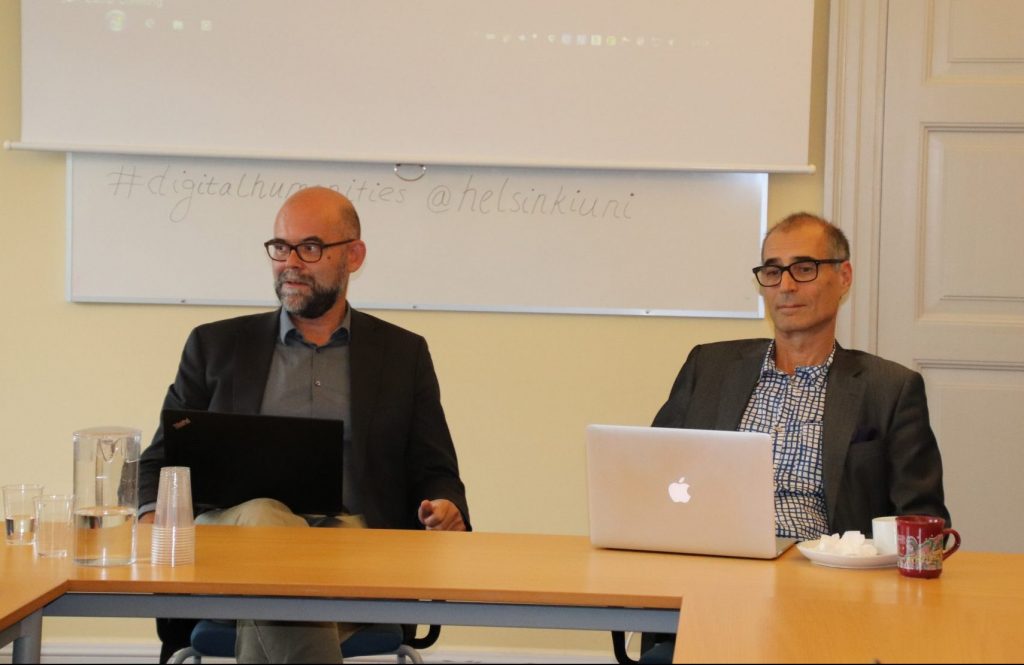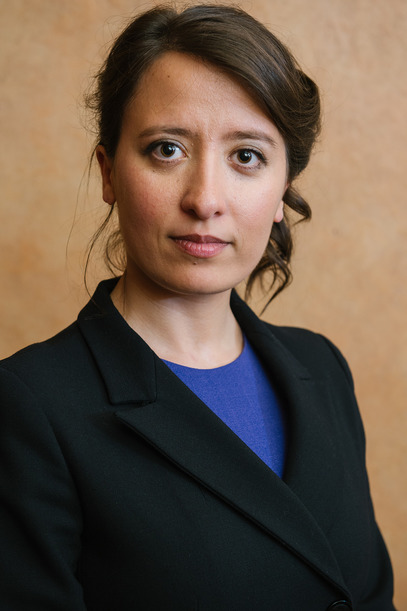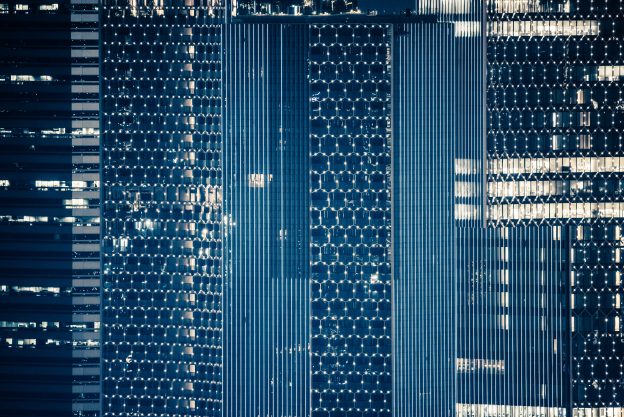by Janne Suutarinen
“The question of algorithms concerns much of human action and control of one’s own life. Thus it is in the core of the whole idea of humanity.” – Markku Kangaspuro
This week Aleksanteri Institute hosted a workshop (Politics of) Digital Humanities in Eastern European Studies, which brought together an interdisciplinary group of scholars to present their research and to discuss about the future of the ever-digitalizing world of humanities. The presentations dealt with for example challenges and possibilities of digital archives, computational linguistics, memory politics in a digital age, as well as Twitter activity of Kremlin trolls.

Peter Haslinger (left) and Markku Kangaspuro hope for the continuation of the workshop series. (Photo: Ilona Repponen)
Markku Kangaspuro, Aleksanteri Institute’s director and the host of the event, believes that the progress in the field of digital humanities opens up new possibilities in the research or Russian media as well. For instance Integrum, the vast archive of Russian, Ukrainian and other former Soviet countries’ media sources, has proven to be essential.
What are the potentials of digital humanities in the research of Russian media?
“The potential is great. Besides Integrum, where we have almost the whole Russian media starting from about mid-90’s digitalized in one data base, the media in general is moving to the internet as we speak. This opens up a huge bulk of sources, and in the case we can get these sources for the use of research, we really need new research methods and tools also.
The current situation is not even comparable to the old style media studies, in which one used papery newspapers, listened to radio and maybe read microfilms.”
Continue reading →



